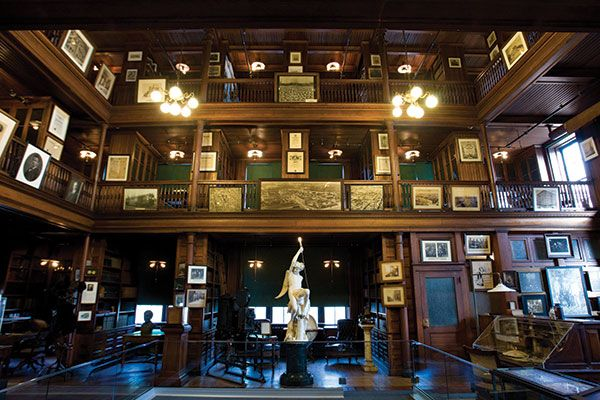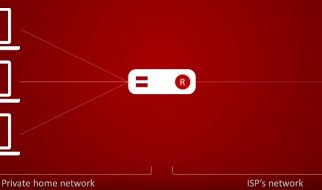
This is why the smartest people in the world own tons of books they don?t read.
If you love to read as much as I do, walking into a bookstore as an adult feels exactly like walking into a candy store as a kid.
The shelves are lined with the wisdom of humanity, insights that each author has spent years refining. It?s all right there at your fingertips, condensed into a format that you can curl up with.
So naturally, you pull out your credit card or press the ?Buy Now? button.
And the books pile up. On your shelves. In your bedroom. In your car. Maybe even your bathroom.
The most dedicated book addicts find space where there was previously none:
 Source: http://bit.ly/2JRrqbk
Source: http://bit.ly/2JRrqbk
And as the books pile up, so does your guilt. Guilt at not reading all of the books you buy. Guilt at not finishing the books you start.
If this describes you, I have good news for you.
?Even if you do not have the time to read them all, overstuffing your bookshelf or e-reader is good for you.? Jessica Stillman
As I will explain in this article, for people who actually put in the time to read and learn how to learn, unread books strewn across the house might actually be a sign of intelligence rather than the lack of it.
Not only is having tons of unfinished books around a sign of smarts, it also puts you in great company. I finally let go of my own guilt when I did a deep dive into the reading habits of luminary entrepreneurs and informally surveyed my most successful friends. Most of them only read 20 to 40 percent of the books they purchase. Many of them were reading over 10 books at once.
In fact, one of the most avid readers in the tech scene and a self-made billionaire entrepreneur, estimates?
?I maybe start half the books I get, and I probably finish a third of the books I start. And that works out to finishing 1?2 books per week.? ? Patrick Collison
What?s going on here?
As I?ve studied the reading habits of others in addition to the enormous changes in our knowledge society, I?ve become convinced that our new times call for new ways of searching for, filtering, consuming, and applying knowledge in order to improve our lives.
The explosion of information in different mediums and formats, research tools to find the best information, and new apps to consume the information don?t just call for more reading. These call for new ways of reading.
Getting lost in fiction the old-fashioned way is still a big part of my reading life, but when I am reading to learn rather than to relax, I now use a variety of shortcuts and strategies to choose what books to buy and how to read them.
What follows are the smartest non-fiction reading hacks I?ve come across from world-class entrepreneurs.
Smart reading hack 1: View books as an experiment
My friend Emerson Spartz, a successful serial entrepreneur and investor who has read thousands of books, makes a compelling case that buying a book is an experiment. On the cost side, you?ll need to spend about $15 and some time. But on the upside, a book can change your life. That?s a pretty good bet!
What we know about experimentation is that the more ?smart? experiments you perform, the more likely you are to find a breakthrough experiment that changes everything. The most eminent scientists and successful companies are typically the ones who perform the most experiments.
In my experience, I need to research, purchase, and explore 10 books before I find one that I consider to be breakthrough knowledge.
Inherent in being a good experimenter is being OK with the losses. Therefore, remember that every time you purchase a book that turns out to be a dud, you are just one step closer to a book that will change your life.
Smart reading hack 2: Do Fractal Reading
We?ve reached an inflection point as a knowledge society. The metadata that books generate (i.e., author interviews, author presentations, book summaries, reviews, quotes, first and last chapters, etc.) is often just as valuable as the book itself.
Why?
- It?s free. This allows you to try more books before you buy them. Therefore, each book buying ?experiment? has better odds of succeeding.
- It?s multimedia. You can access this information as text, audio, and video, which makes it easier to incorporate into your lifestyle (e.g., your daily commute or chores).
- It has a high signal-to-noise ratio. The shortened formats cut out the fluff and get right to the big ideas.
Just as a book is a condensed version of an author?s best ideas, the book?s metadata is a condensed version of the book.
Therefore, I call this type of reading ?Fractal Reading? because fractals are objects where the same patterns happen at different levels of scale.

We?ve reached a moment where it might be more useful and convenient to spend one?s non-fiction reading time ?Fractal Reading? rather than reading one whole book cover to cover. For example, I?d estimate I spend 50% of my deliberate learning time focused on Fractal Reading rather than deep, sequential reading. This helps me more effectively select which books to go deep on and understand the most important and relevant sections of a book so I can jump right to them. In most cases, doing Fractal Reading on 5 books is more valuable and engaging to me than consuming one book cover-to-cover.
Here?s how to do it:
- Read 2?3 book summaries (Google search). For almost any book, you?ll find several book summaries, which often contain the best information in the book (the 20 percent of ideas that create 80 percent of value). And to clarify, I?m only talking about nonfiction books here. This, of course, would not be relevant to fiction.
- Listen to an author interview (podcast, Google). Interviews are engaging, and the interviewer does the work for you, asking the author the most pertinent and compelling questions they?ve gleaned from reading the book.
- Watch an author presentation (TED, Google, or university talk). When an author is forced to whittle down a 200-page book into a 20-minute talk, they share their biggest idea and best story.
- Read the most helpful 1-star, 2-star, 3-star, 4-star, and 5-star reviews (Amazon). Amazon helps us all quickly sort the most well thought-out reviews from readers who loved the book down to those who hated it.
- Read the first and last chapters of the book. The first and last chapters of a book often contain the most valuable content in it (this obviously doesn?t work if you?re hoping to get lost in a novel). In addition, the first and last paragraphs of each chapter contain the big ideas of each chapter. With Google Books, ebook free samples, and Amazon?s Look Inside feature, it?s often possible to get the first and last chapter of a book for free.
Smart reading hack 3: View your unread books as a reminder of how little you know
Intellectual humility isn?t valuable just because it?s a virtue. It?s valuable because it gives us a more realistic conception of ourselves and our place in the world, which helps us conduct our lives more effectively and harmoniously. For example, humility helps us make better decisions and inspires us to learn more.
Here?s how I think of it: there are billions of people who have been creating and documenting their knowledge for thousands of years. What we know compared to what humanity has collectively discovered is but a drop in the ocean. And that ocean is growing at a speed we can?t even fathom. Most of the scientists who have ever lived are alive today!
To take things even further, when it comes to all of the knowledge that humanity could discover and what we?ve already discovered as a species, the difference is more like a grain of sand in the universe. So there are three levels of humility we should have:
- Personal Knowledge
- Humanity?s Current Knowledge
- All Potential Knowledge
Yet, when it comes to day-to-day lived experience, it feels like we know way more than we actually do. On our good days, many of us feel like we have this ?life thing? figured out. Like we are at the end of a cycle rather than the beginning. This is because we are constantly reminded of what we know and rarely reminded (if ever) of how little we know.
Sure, we may know conceptually that we don?t know everything, but we don?t physically see it. I was recently reminded of this when I spent two hours touring through two of Princeton University?s six libraries. I must have walked through 10 football fields of books and academic journals. On the one hand, it was inspiring to see everything I could learn. On the other hand, it was extremely humbling. It helped me see how little I currently know, and it helped me see that even if I spent my whole life just reading, I would still only know a fraction of knowledge out there.
Creating an anti-library by surrounding ourselves with unread books in your home can evoke a similar feeling. Bestselling author and successful investor Nassim Taleb describes the value of an anti-library brilliantly in his book, The Black Swan:
A private library is not an ego-boosting appendage but a research tool. Read books are far less valuable than unread ones. The library should contain as much of what you do not know as your financial means, mortgage rates, and the currently tight real-estate market allows you to put there. You?ll accumulate more knowledge and more books as you grow older, and the growing number of unread books on the shelves will look at you menacingly. Indeed, the more you know, the larger the rows of unread books. Let us call this collection of unread books an antilibrary.
Taleb isn?t alone in his sentiment. Italian novelist and philosopher Umberto Eco collected more than 30,000 books. Thomas Jefferson collected more than 6,000 books, making his library the largest in the country at the time. The founder of Priceline.com Jay Walker has such a big collection of books that he built his home around it. Thomas Edison put his work desk in the center of his personal three-story library. Out of all of the rooms in Bill Gates? house, his favorite is his enormous 2,100 square foot library.
 Personal library of Jay Walker, founder of Priceline.com
Personal library of Jay Walker, founder of Priceline.com Thomas Edison?s Library
Thomas Edison?s Library Personal library of Bill Gates
Personal library of Bill Gates
Smart reading hack 4: Abandon good books for great books.
On a great podcast episode of the Knowledge Project, Patrick Collison, the self-made billionaire founder of Stripe, makes the following case:
At every moment, you should be reading the best book you know of in the world [for you]. But as soon as you discover something that seems more interesting or more important, you should absolutely discard your current book ? because any other algorithm necessarily results in your reading ?worse? stuff over time.
In other words, do exactly the opposite of what we?ve been taught. Instead of vowing to finish every book you pick up, allow yourself to simply drop your current book ? but only if you find one that?s better. Life is too short and there are just too many good books out there. On the other hand, we have to be careful about going too far in the other direction, abandoning great books just because we see a book with a catchy title.
How do you know you?re not jumping too quickly between books? This is where Fractal Reading earns its stripes. If a book?s metadata hasn?t captured your attention, then it?s unlikely that reading the whole book will.
Smart reading hack 5: Use books to create space in your mind for great ideas to collide
We know that targeted advertisements are effective. They affect us both consciously and unconsciously. Similarly, books placed strategically in our environment do the same.
My mentor, business partner, and friend Eben Pagan thinks of a bookshelf as a playlist of all-time intellectual greats:
The most important book on your bookshelf is the one that you haven?t read yet. If you have a great potential book, now may not be the right time to read it. It might be in a year, or 10 years. But when you see a book at the right time, you will become curious about it and take it off your bookshelf.
Patrick Collison speaks in similar terms:
The other thing I think is actually quite valuable is just leaving books out. When somebody recommends a book, I?ll very often pick up a copy? And, I?ll leave it out. So there is books in the kitchen. There?s books in my bedroom? And just strewn everywhere.
And surprisingly commonly, someone else will recommend the book or some aspect of the book, and it?s still around you. It?s still salient. And you?ll be like, ?Oh yeah, I should really check out that thing.?
Or, something else triggers its relevance. You read an article. You start appreciating a point or a question or something.
And so, part of the reason I still value physical books is because it creates a kind of idea space for you that makes productive collisions more likely to happen.
Smart reading hack 6: Read books like magazines
Reading a book like a magazine is a powerful metaphor. When we pick up a magazine, we don?t feel guilty if we don?t read every page or if we just do a 5-minute reading spurt. Instead, we often skim to find the most interesting and relevant articles and then go deep and slow on those. This approach is powerful on a few levels:
- It helps find the most important knowledge that?s worth going deep on.
- It helps us slow down so we get the most from what we do go deep on.
- It makes reading easier to do, which means we are more likely to actually be consistent.
Because, let?s face it. Our attention spans aren?t what they used to be. Sitting and reading for hours straight without distraction is theoretically great, but if you don?t actually do it, it has zero value.
Avid reader and famous tech investor and entrepreneur Naval Ravikant has pioneered a reading system that helps him use his shorter attention span to his benefit.
Ravikant noticed that many of the books that had the most value are older source books that form the foundation of other books. He describes the value of these books in a Tim Ferriss podcast episode:
The older the problem, the older the solution. If you?re talking about an old problem like how to keep your body healthy, how to stay calm and peaceful of mind, what kinds of value systems are good, how should you raise your family?these kinds of things, the older solutions are probably better because they?ve withstood the test of time. Any book that has been around for 2,000 years has been filtered by a lot of people.
But Ravikant noticed a challenge with reading these types of books:
?but I knew it was a very hard problem because my brain had been trained on Facebook and Twitter and these other bite-size pieces. So what I did is I came up with this hack where I started treating books as throw away blog posts or as bite-size tweets or Facebook posts. And I felt no obligation to finish any book. Now, any time someone mentions a book to me, I buy it. At any given time, I?m reading between 10 and 20 books. I?m flipping through them, so if the book is getting a little boring, I?ll skip ahead. Sometimes, I?ll start reading a book in the middle because some paragraph caught my eye, and I?ll just continue from there. I feel no obligation whatsoever to finish the book.
If at some point in time, I determine that the book is boring if it?s got some pieces of it that are incorrect so that now I can?t trust the rest of the information in there, I just delete them, and I don?t remember them at all. so I treat books now like other people might treat other throw away light information on the web. So all of a sudden books are back into my reading library.
Ultimately, it?s not about how many books you finish.
Just by walking into their homes it is difficult to tell the difference between a book hoarder and smart reader. Each house would be strewn with books. But under this surface similarity, there are three qualities that separate the two.
- Smart readers create a consistent learning ritual. I recommend you follow the 5?Hour Rule, spending about an hour a day reading like many of the the world?s top entrepreneurs and leaders. I spent dozens of hours creating a free webinar that helps you find the time to learn and stay consistent. Today, I spend 4?5 hours per day in deliberate learning while growing my company and raising two kids.
- Smart readers learn how to learn. In other words, they maximize the value they get from the time they put into reading. I created a free email course to help you learn mental models, one of the keys to learning faster and better. Inside, you?ll learn the models that self-made billionaire entrepreneurs and investors use to make business and investing decisions ? tools you can apply immediately to your life and business. You?ll also learn how to naturally use these models in your everyday life.
- Smart readers take action until they get the result they?re looking for. The value of theoretical knowledge comes from its application.
If you take these three steps consistently, then it?s time for you to let go of the guilt. You don?t have to read all the books on your shelf. And when you do pick one up, you don?t have to read the entire thing.
Whereas book hoarders judge themselves by the number of books they own, smart readers judge themselves by what they get out of them.
* * *
This article is part of a series of articles on Learning How To Learn that I?ve written over the past two years. Becoming a polymath is just one of many approaches to learning faster and more effectively which I share. You can watch my webinar that summarizes some of the biggest principles by following the link below?
Sign up for the free Learning How To Learn webinar here >>
This article was written with love and care using the blockbuster mental model.


